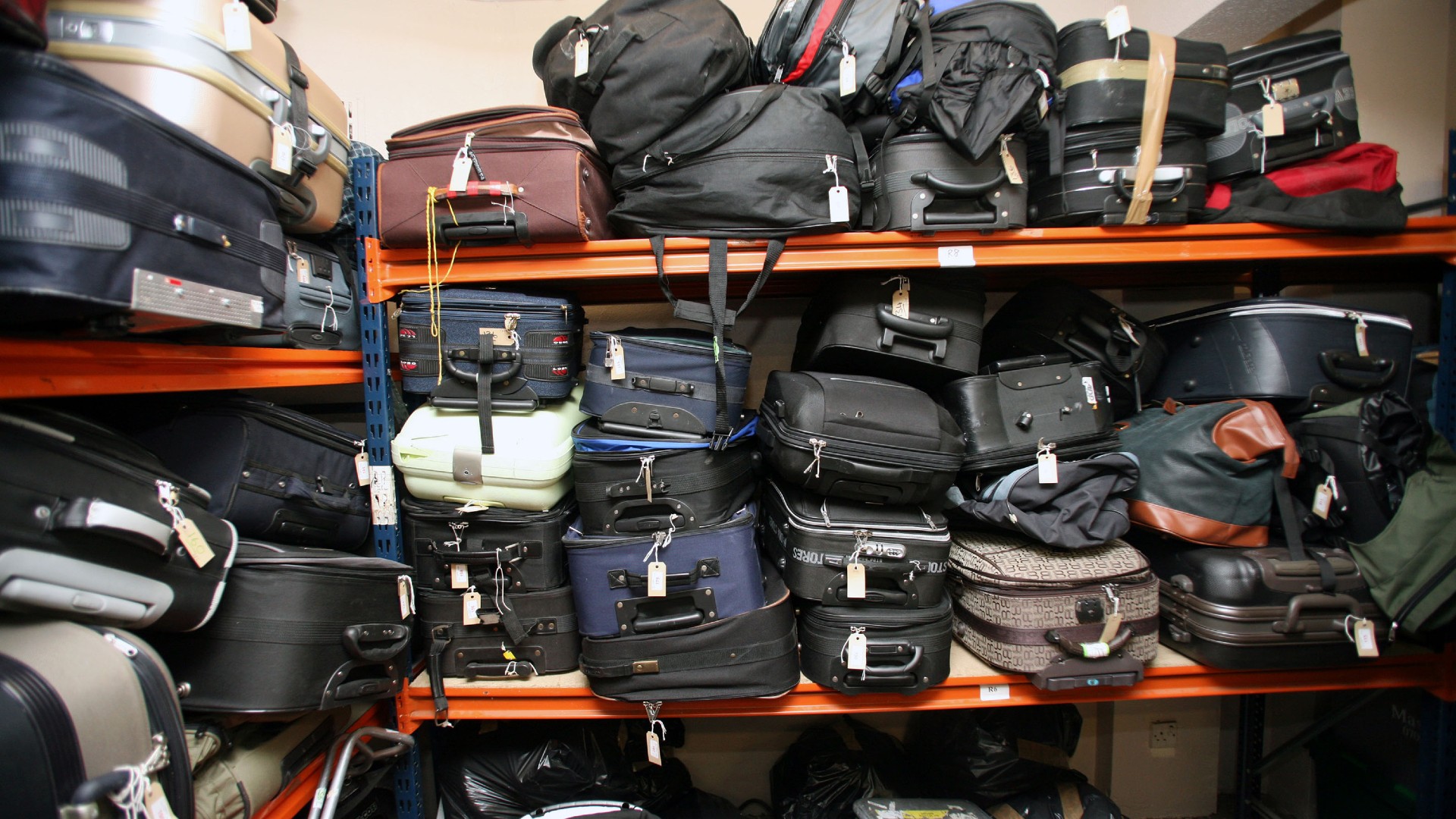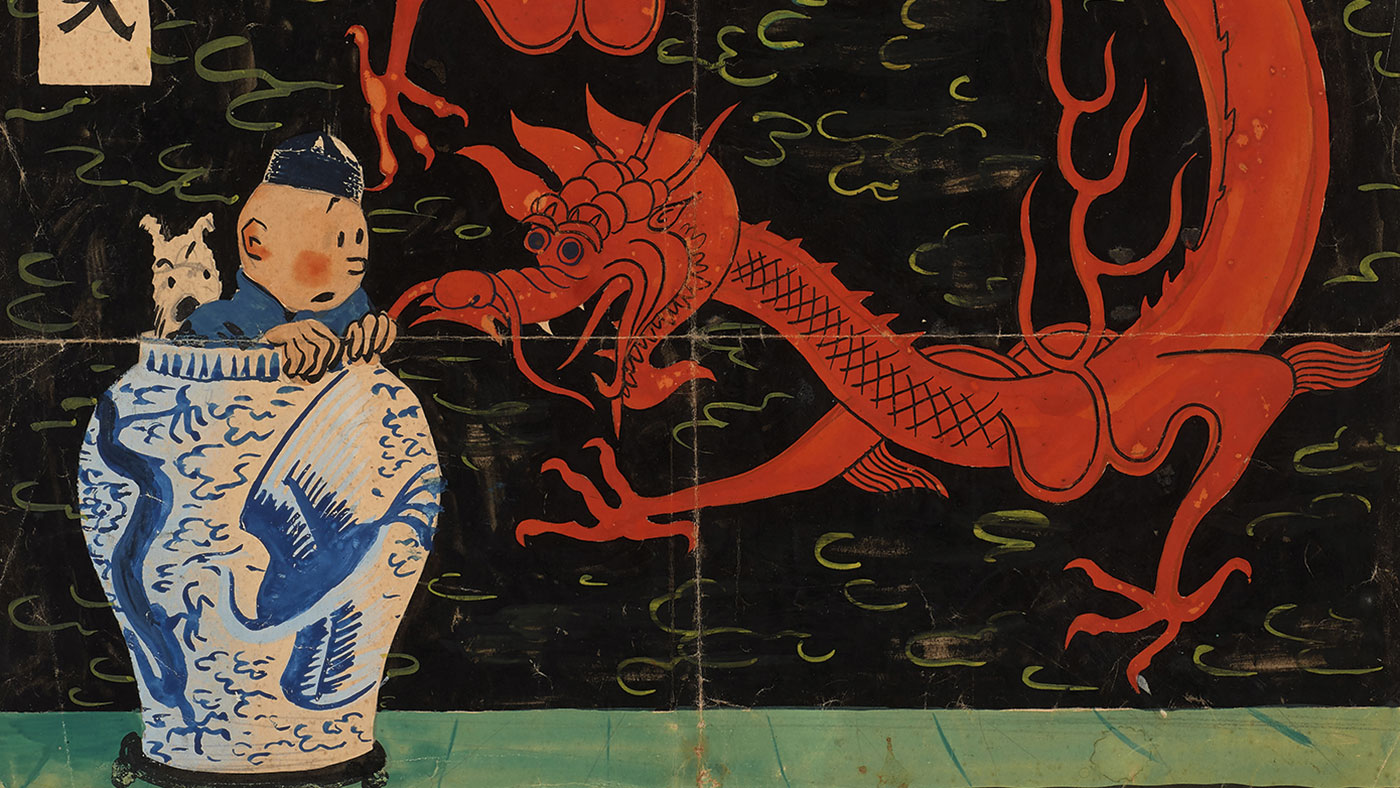Auctions: what you should know before you go
Auctions showcase items ranging from classic cars and comic books to jewellery and toys.

A free daily email with the biggest news stories of the day – and the best features from TheWeek.com
You are now subscribed
Your newsletter sign-up was successful

The auctioneer is rattling off sounds like a machine gun. “Five hundred, five-fifty, six, six-fifty…” There’s no stopping the numbers. They just keep going higher. The atmosphere in the room hits fever-pitch. “Oohs and aahs” ring out around you. Three bidders in the room are locked in a tense battle with another two on the phones. Who will win? Will it ever end? “Seven hundred! Seven-fifty, eight!”
That itch on the end of your nose is tormenting you. Every time you try to ignore it, it gets worse. The itch! Just concentrate on the action, you tell yourself. “Nine, nine-fifty!” Blast it, you just can’t stand it anymore. You scratch your nose. The relief! But oh, the auctioneer has seen you! “One thousand from the person at the back!” You were only scratching your nose! You pray for another bid. But none comes. “Sold for £1,000 to the person at the back!” How will you explain it to your spouse?
The Week
Escape your echo chamber. Get the facts behind the news, plus analysis from multiple perspectives.

Sign up for The Week's Free Newsletters
From our morning news briefing to a weekly Good News Newsletter, get the best of The Week delivered directly to your inbox.
From our morning news briefing to a weekly Good News Newsletter, get the best of The Week delivered directly to your inbox.
For people who have never attended an auction, this scenario is probably their worst nightmare. You wiggle an ear, you scratch your nose, you blink and you are lumbered with something you didn’t want, with no idea of how you are going to pay for it. You are vaguely aware that bids at auction are legal contracts. So, there’s no getting out of it.
The good news, however, is that an ear-wiggle is not going to land you in debt. That’s just a myth. As Luke Macdonald, a director at Cheffins auction house in Cambridge, told Victoria Brzezinski in The Times earlier this year: “As auctioneers we are looking for your bidding number and someone who is really bidding.” So, scratch away.
Who are the main players?
You will have heard of Sotheby’s and Christie’s. Together, these auction behemoths sell over 80% of all artworks priced over $1m. There are, however, other auction houses to consider.
A free daily email with the biggest news stories of the day – and the best features from TheWeek.com
Many are specialists in particular fields. For instance, while Bonhams dabbles in everything, it dominates the classic car market, presiding over the car auctions at Goodwood, West Sussex, every year. Phillips is known for selling jewellery and watches, while if it’s comic books you’re after, try Texas-based Heritage Auctions.
For sports and celebrity memorabilia, there are Profiles in History and Julien’s Auctions – both based in America. Swann Auction Galleries in New York handles rare books, manuscripts, and works on paper. Vectis Auctions is the specialist for toys in Britain. On the continent, Paris-based Artcurial focuses on the French art scene.
A local auction house can be just the place to learn the ropes. Chiswick Auctions, for example, has branches in Chiswick and South Kensington, west London, as well as premises in Edinburgh.
If you know what you want, but don’t know where to look, then Barnebys.co.uk is a useful online aggregator. You can then peruse the online catalogues to find what you want. Just don’t forget to factor in VAT and the buyer’s premium, which comes on top of the winning bid (the hammer price). It can be as high as 25%.
Artists may also be entitled to a fee as part of their Artist’s Resale Right (ARR – see below) each time their work is resold.
Why you should go to auctions
“Auctions are excellent spaces to learn about a particular market,” says Lazarus Halstead, head of Asian Art at Chiswick Auctions. “Their selection… is often much wider than what a dealer may have in stock, and while it is possible to pay below or above true market value, auction prices are decided by the market and give an excellent snapshot of demand at a particular moment.”
Attending an auction isn’t just about bagging a bargain, however – and if you’re starting out as a collector, bagging a bargain shouldn’t be your main priority anyway. “Perhaps the most important thing is not to expect to buy something significantly below current market value,” says Halstead. “If it looks too good to be true, it probably is.
Check carefully what the auction house guarantees in terms of age and authenticity.” And “ask for a condition report, because the condition of a piece will have a significant bearing on its value, and condition issues may not be obvious on first glance”.
Don’t be afraid to ask around for advice and information. “Talk to credible specialists before going ahead with a prospective purchase. This will include the auction specialist but could also include the important dealers in your collecting field,” says Halstead. Employing the assistance of a credible adviser or dealer could save you from making costly mistakes. And always go for quality over quantity. “Rare and exceptional pieces in any category will tend to hold their value best.”
Decide why you are collecting
It’s also important to decide why you are collecting. If it is just for fun, and you can spare the money to indulge in your hobby, then all well and good. A collection of fine Iznik pottery won’t pay you an income – but it is beautiful to look at. If you are collecting to accumulate wealth for your retirement, you will want to consider a more reliable way to invest, such as an Individual Savings Account (Isa) or a self-invested personal pension (Sipp). The value of collectables depends on the whim of the market; its view of what’s fashionable and what isn’t can change rapidly.
Collectables also tend to be illiquid: they can be hard to sell for the price you want if you need to raise cash quickly. They are usually rare or unique items. That’s what makes them collectable. When starting out, also “consider your exit strategy – what is your time frame for disposing of the collection and how will it be done?”, says Halstead. “Are you going to build up a themed collection which could be sold together to add value?”
Most importantly, however, remember that auctions are supposed to be fun, as Halstead points out. They are a “meeting point for all kinds of different people, from private collectors to dealers to those who get a buzz from the excitement of auction”. Whether it’s collectable Japanese woodblock prints or Hermès Birkin handbags, auctions are a great place to learn about a market. Enjoy them.
A guide to auction jargon
Absentee bid: A bid from someone not present at the auction.
Appraisal: An evaluation of an item’s “fair market value” (FMV) or insurance value.
Artist’s Resale Right (ARR): A European Union directive that entitles an artist to a royalty payment each time their work is sold on the secondary market for up to 70 years after their death. At auction, it is calculated on the “hammer price” and ranges from 0.25% to 4% of it.
Bought-in: Confusingly, this refers to when an item fails to sell. The item is then said to be “burned”, potentially making it harder to sell next time.
Chandelier bids: An auctioneer can point to nobody in particular (ie, the chandelier) and invent a bid to keep the process going. It is frowned upon, but it is legal so long as the bids are below the “reserve” price. The polite term is “consecutive bidding”. When people invent bids to drive up prices, they are termed “shills” and the practice is known as “collusion”, which is illegal.
Consign: To send an item to auction. The owner is the “consignor” until it that item is sold.
Estimate: An upper and lower range of how much an item is thought to be worth.
Fair warning: What the auctioneer gives when bidding is about to end.
Guarantee: Money the owner will receive from the auction house or a third party if their item fails to sell. Hammer price: The price at which the hammer comes down (ie, the winning bid). It does not include premiums and taxes.
Knocked down: The moment the hammer comes down on a sold item.
Lot: The item for sale.
Paddle: The object you wave with your bidder number on it.
Proxy bid: A bid made on behalf of someone else.
Reserve: The minimum price a seller will accept from bidders for their item, usually set at the low end of the estimate.
Seller’s commission: The fee paid to the auction house by the seller of an item.
This article was originally published in MoneyWeek
-
 The EU’s war on fast fashion
The EU’s war on fast fashionIn the Spotlight Bloc launches investigation into Shein over sale of weapons and ‘childlike’ sex dolls, alongside efforts to tax e-commerce giants and combat textile waste
-
 How to Get to Heaven from Belfast: a ‘highly entertaining ride’
How to Get to Heaven from Belfast: a ‘highly entertaining ride’The Week Recommends Mystery-comedy from the creator of Derry Girls should be ‘your new binge-watch’
-
 The 8 best TV shows of the 1960s
The 8 best TV shows of the 1960sThe standout shows of this decade take viewers from outer space to the Wild West
-
 The rise of the lost luggage auction
The rise of the lost luggage auctionIn the Spotlight Lost luggage hauls are attracting millions of views online
-
 Most US adults ‘have been visited by dead relative’
Most US adults ‘have been visited by dead relative’feature And other stories from the stranger side of life
-
 Collectables: the market in Tintin artwork takes off
Collectables: the market in Tintin artwork takes offThe Week Recommends Tintin, the Belgian boy-reporter cum adventurer, is in demand once again
-
 The art world goes online with virtual auctions
The art world goes online with virtual auctionsSpeed Read The pandemic has presented new challenges for auction houses
-
 The art market endures after a jittery 2019
The art market endures after a jittery 2019Speed Read Wealthy Americans step up to help calm the art market’s jitters
-
 The world’s most beautiful book set for $8m sale
The world’s most beautiful book set for $8m saleSpeed Read John James Audubon’s stunning The Birds of America is up for auction.
-
 Auction news: a booming trade in Asian art
Auction news: a booming trade in Asian artIn Depth Japanese porcelain, Indian diamonds and a 16th century portrait with an intriguing history
-
 Scotch whisky heads east
Scotch whisky heads eastIn Depth Asian markets are thirsty for collectable whiskies